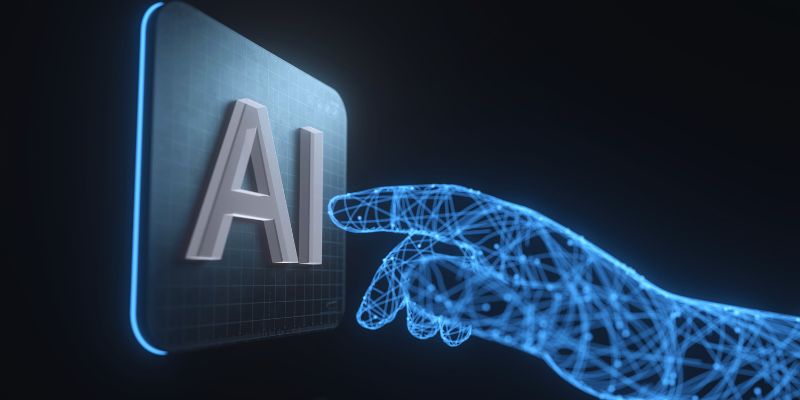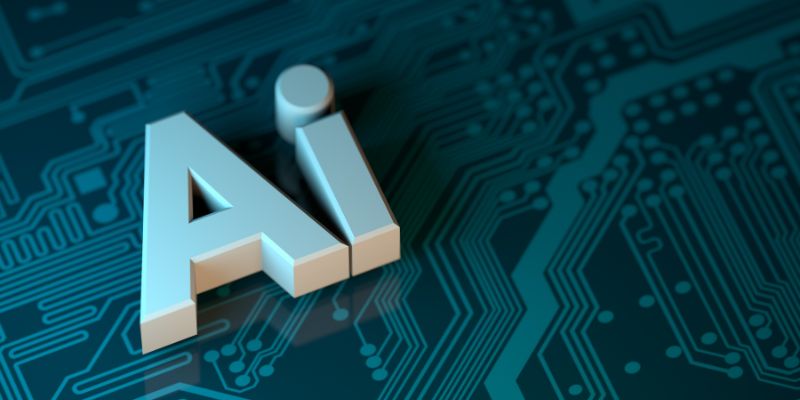Artificial intelligence (AI) is the science of creating intelligent machines that can perform tasks, learn, solve problems, and make decisions like humans. AI is everywhere for now, making life easier, improving living standards, and creating a brighter future. Not only that, AI continues to grow and is gradually becoming an integral part of modern society. But, aside from that, AI poses several ethical issues, including social challenges, plagiarism concerns, etc.
So, remember that the success or failure of artificial intelligence depends on human decisions, and for the sake of future generations, you need to make the right choices. But before taking any steps and making any decisions, learn all about artificial intelligence in this article!

Understanding AI: What Is It, How Does It Works, and Types
Artificial intelligence is a vast field of technology that aims to develop machines that can learn, make choices, and perform different activities like humans. AI uses complicated techniques and superior computing power to explore vast information, understand trends, and make informed choices or forecasts. Then, utilize the predictions to react or start operations. Businesses use it for manufacturing lines, statistics, reports, and other applications. At the same time, the public utilizes it to simplify their daily tasks. AI is classified into four categories, each based on how much data it can retain and how it is used. Some can't save info and can only respond to whatever is in front of them. A few can only hold a certain quantity of data. At the same time, others may hold large amounts of data and utilize it for improvement. Let’s learn about different types of AI in detail here:
- Reactive: The most crucial type of AI runs on a "reactive" system. As the name implies, this type of AI cannot store data and only respond to what comes before them. They can execute particular instructions and requests but can't maintain memory or use prior knowledge to make quick decisions. These characteristics render reactive machines advantages when performing particular tasks.
- Limited Memory: This AI type is more powerful and intelligent than reactive machines. They may temporarily save information and use previous experiences to make more intelligent choices. These systems serve as the basis for the majority of modern AI applications. Robotic cars, which use past information to figure out paths while avoiding hazards, are excellent examples of limited memory AI in practice.
- Theory Of Mind: The theory of mind is a type of AI that expresses the concept of an AI system designed to understand and recognize human feelings, values, and desires. This type aims to develop machines that connect with humans spontaneously and compassionately.
- Self-awareness: Self-aware AI indicates the peak of AI advancement, featuring robots having a feeling of identity and consciousness. The constructed AI becomes mindful of itself, its spot in the natural world, and its role. It will be equipped with human-level intelligence and the ability to think and make choices.

Benefits Of AI
Undoubtedly, there is a countless number of benefits to employing AI. Firstly, AI doesn't make errors or get exhausted like human labor can. Besides that, some of the significant benefits of AI include:
- Improved Customer Experience: AI may boost and tailor the customer experience (CX). Chatbots use artificial and automated assistants to improve client service by always replying to requests immediately and solving issues. Individual suggestions based on AI algorithms help to provide a more targeted and fulfilling client experience.
- Increase Efficiency And Productivity: AI technology can handle typical tasks like data input, manufacturing work, and customer support discussions, allowing humans to concentrate on other goals.
- Cost Reduction: Artificial intelligence can lower maintenance costs by performing tasks requiring human intervention. It can also manage more work without additional cost. For example, artificially intelligent workers can deal with a significant rise in customer needs without seeking additional human assistance.
- Reduce Error: AI has been found helpful in detecting faults or errors in massive amounts of digital information. It eliminates human mistakes while maintaining quality.
- Enhanced Safety: Artificial intelligence is utilized for continuous tracking and risk prediction. The technology can be programmed to recognize different machine actions and human behavior. It may identify actions that deviate from planned parameters, representing a threat. Such AI applications have strengthened security scores in various sectors and circumstances.
Challenges And Limitations Of AI
Artificial intelligence (AI) provides many advantages but also poses certain challenges and limitations, as mentioned below:
- Lack of Creativity: As artificial intelligence is restricted by its own computations and the information it holds, it cannot solve new problems or succeed in any highly skilled matter. Although machine learning algorithms assist machines in continuously acquiring knowledge, they lack the potential for innovation, guidance, and new ways to approach problems that humans possess.
- Job Displacement: AI's ability to speed up procedures, produce quick results, and work for extended periods may reduce job opportunities for human employees. According to recent forecasts, AI is expected to generate as many job opportunities as it eliminates. However, preparing human beings for these new opportunities will be challenging.
- Increased Inactivity In Humans And Decreased Productivity: AI can foster laziness in humans because some believe AI operates when it fails to. They accept outcomes without reviewing or correcting them. At this point, AI use can reduce productivity or creativity since it can create results that demand humans to check, modify, or approve.
Conclusion:
Artificial intelligence (AI) is more than just a technical revolution; it transforms our lives. Understanding how it works and its benefits and limitations allows us to use it wisely and productively. Knowing its drawbacks is crucial since it will enable the users to tackle these issues, resulting in a more appealing, safer, and fair usage of artificial intelligence in the real world. It is just the beginning, and in the coming years, it will continue to get wiser and assist us in many ways, making our planet more comfortable and linked!
